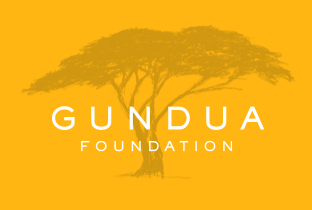The Health Centre was officially opened on 12 November 2011. The Centre offers high medical standard with modern equipment and well-educated staff. The Centre provides a broad spectrum of medical services including primary care, dental care, HIV prevention, childbirth services and maternity care, vaccinations, basic surgery, lab tests, diagnoses as well as preventive care and education in health-related matters and a pharmacy.
The health situation in Kenya is slowly but surely improving. At the same time, there are differences between cities and countryside when it comes to availability of healthcare, with a doctor-density outside the big cities corresponding to around one percent of the Swedish level.
Today we can look back on a successful development of our health services.
In 2021 a collaboration with a well-known local hospital was initiated and in September 2021 the daily operations of Gundua Health Centre was transmitted to Nanyuki Cottage Hospital with the aim of further developing the health services provided and to acquire a Level 4 Hospital-status (in line with Meru and Kiirua Hospitals).
Gundua Health Centre/ Nanyuki Cottage Hospital has equipped and furthered developed the premises and the operations:
Triage room in the entrance (for rapid initial patient assessment)
New maternity ward/delivery room
Operating room
Patient admission room for 12 patients in one of the Wallenberg Houses, including new shower/toilets and laundry facilities
Apotek Hjärtat has been the main sponsor of the health centre since the start and has supported the centre with important pharmaceutical competence. Gundua Health Centre also collaborates with Rotary’s medical bank, which means that primarily dentists from the Nordic countries contribute with their know how and experience to the clinic.
Even if care and medication are important, there is a lot to gain from preventive care. The long-term ambition of Gundua Health Centre/Nanyuki Cottage Hospital is to increase the standard of living in the region by battling problems such as malnutrition, resistance to antibiotics, alcoholism, sexually transmitted diseases and unplanned pregnancies. The main challenge is to increase the inhabitants’ generally low knowledge of hygiene and health. And the first step to generate change is to educate the children. Sexual information and family planning is neglected and many students at Gundua Secondary School are forced to interrupt their studies because they get pregnant.






Information, education and health care
Vaccination of children
One of the most important programs implemented years ago with the support of our sponsors is the vaccination plan for children below five years of age. The Gundua Health Centre follows the national vaccination programs and conducts ongoing campaigns in order to convince parents to vaccinate their children. Many local parents now bring their children in for regular follow-ups, and the center has vaccinated nearly 3500 children since 2011.
Planned parenthood and HIV
The Gundua Health Centre has done extensive work in the area of planned parenthood. As in many poor areas worldwide, the lack of knowledge regarding family planning is a serious problem in the Ex-Lewa area. Problems related to family planning include inability to plan the number of children that one family can support, the spread of sexually transmitted diseases and a general ignorance regarding how to protect oneself during sexual intercourse. Every month, several information meetings are held by experienced nurses, both at the center and in the local communities. The health centre has conducted several campaigns targeting women, where they have offered free contraception in the form of implants as well as free access to condoms. When it comes to HIV, the centre tests patients daily and also invites locals to recurring HIV information days. HIV is still a highly sensitive topic in the area, and the population often has a difficult time accepting the disease, which means that many patients are reluctant to get tested at all.
The rights of girls and young women
Another important ongoing project is to lead the conversation with girls at secondary schools regarding their rights, especially their rights to their own bodies. Many girls leave school every year due to unplanned pregnancies, and many experience sexual debuts that include violence. There are very few natural opportunities, neither at school nor at home, for girls to talk openly about their experiences. These meetings are therefore very important, and are led by experienced professionals from the health center.
Basic hygiene and self-care
The Gundua Health Centre is located in a poor and often dirty agricultural society where the humans often live together with their animals in crowded, dark and smoke-laden sheds without access to toilets and clean water. The level of knowledge regarding the importance of personal hygiene in order to reduce the risk of gastrointestinal diseases is very low. Each month, several educational meetings are held where the locals are taught basic hygiene and personal care. The health centre has also carried out recurrent practical training courses for all the school children in the area on how and why to wash their hands so that the students can pass on the knowledge to their parents and relatives.
Active work with pregnant women and newborns
The Gundua Health Centre has a basic but well-functioning maternity ward with associated health care for both mothers and children. The infant mortality rate is still high in the area, as well as the number of women who die in childbirth. One of the reasons for this is that women traditionally give birth in the home, which is often both dark and dirty, without the help of trained midwives. The Gundua Health Centre has worked extensively with various information campaigns to educate the local women. The health clinic explains and teaches them how important it is to allow the staff of the center to monitor their pregnancies, both before and after the birth, to ensure that both mother and baby are doing well. The work is successful, and over 400 children have now been born at the center. Many women have also started to show up for check-ups both before and after the birth of their children.
The Gundua health centre gains more and more patients
The health centre, with its great capacity and its qualified personnel, has since its opening in 2011 worked actively to increase the number of patients. In the first eight years, over 55 000 patients have visited the center. Much of the work is about gaining the trust of the local population, and to get them to understand that the quality of the health care that they are offered at the center is much better than the other health care options in the area.
The results speak for themselves
Long-term change does not happen overnight, and does not always match today’s requirements of instant results. The trust of the main sponsors of the foundation has been central in order to develop the Gundua Health Centre at a pace that works with the local environment, and the health center has achieved concrete results while the foundation has also been able to build a business that will work in the long term. The center has had over 20 000 patient visits, 16 500 completed lab tests, nearly 200 childbirths, 1100 HIV tests, 2500 child vaccinations and hundreds of educational efforts. The numbers speak for themselves, but what really matters is that children and young people in all the schools in the area have been taught the importance of self care and received help to examine and treat their teeth for the first time in their lives. What also matters is that girls and young women have been offered the chance to understand their rights as well as been strengthened in their self-esteem, and that boys and young men have been trained in how to respect women’s rights. Planned parenthood, in the form of information and protection, has improved the conditions for many families. Fewer children are now born at home, and more mothers and newborns get follow-up treatments and vaccines. Adults and children with chronic diseases have been taught how to care for themselves. The list goes on, and the work to support the local population of Ex-Lewa in Northern Kenya continues. And there is a lot of work left to be done.

